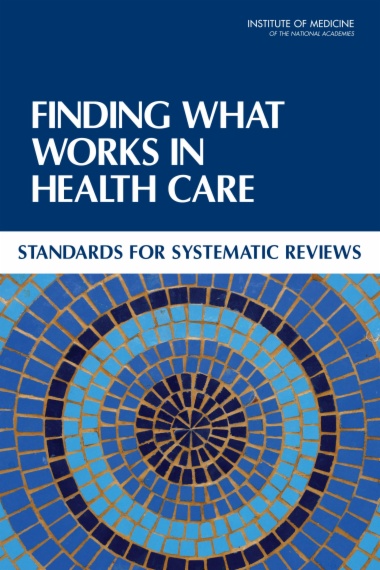

Healthcare decision makers in search of reliable information that compares health interventions increasingly turn to systematic reviews for the best summary of the evidence. Systematic reviews identify, select, assess, and synthesize the findings of similar but separate studies, and can help clarify what is known and not known about the potential benefits and harms of drugs, devices, and other healthcare services. Systematic reviews can be helpful for clinicians who want to integrate research findings into their daily practices, for patients to make well-informed choices about their own care, for professional medical societies and other organizations that develop clinical practice guidelines.
Too often systematic reviews are of uncertain or poor quality. There are no universally accepted standards for developing systematic reviews leading to variability in how conflicts of interest and biases are handled, how evidence is appraised, and the overall scientific rigor of the process.
In Finding What Works in Health Care the Institute of Medicine (IOM) recommends 21 standards for developing high-quality systematic reviews of comparative effectiveness research. The standards address the entire systematic review process from the initial steps of formulating the topic and building the review team to producing a detailed final report that synthesizes what the evidence shows and where knowledge gaps remain.
Finding What Works in Health Care also proposes a framework for improving the quality of the science underpinning systematic reviews. This book will serve as a vital resource for both sponsors and producers of systematic reviews of comparative effectiveness research.